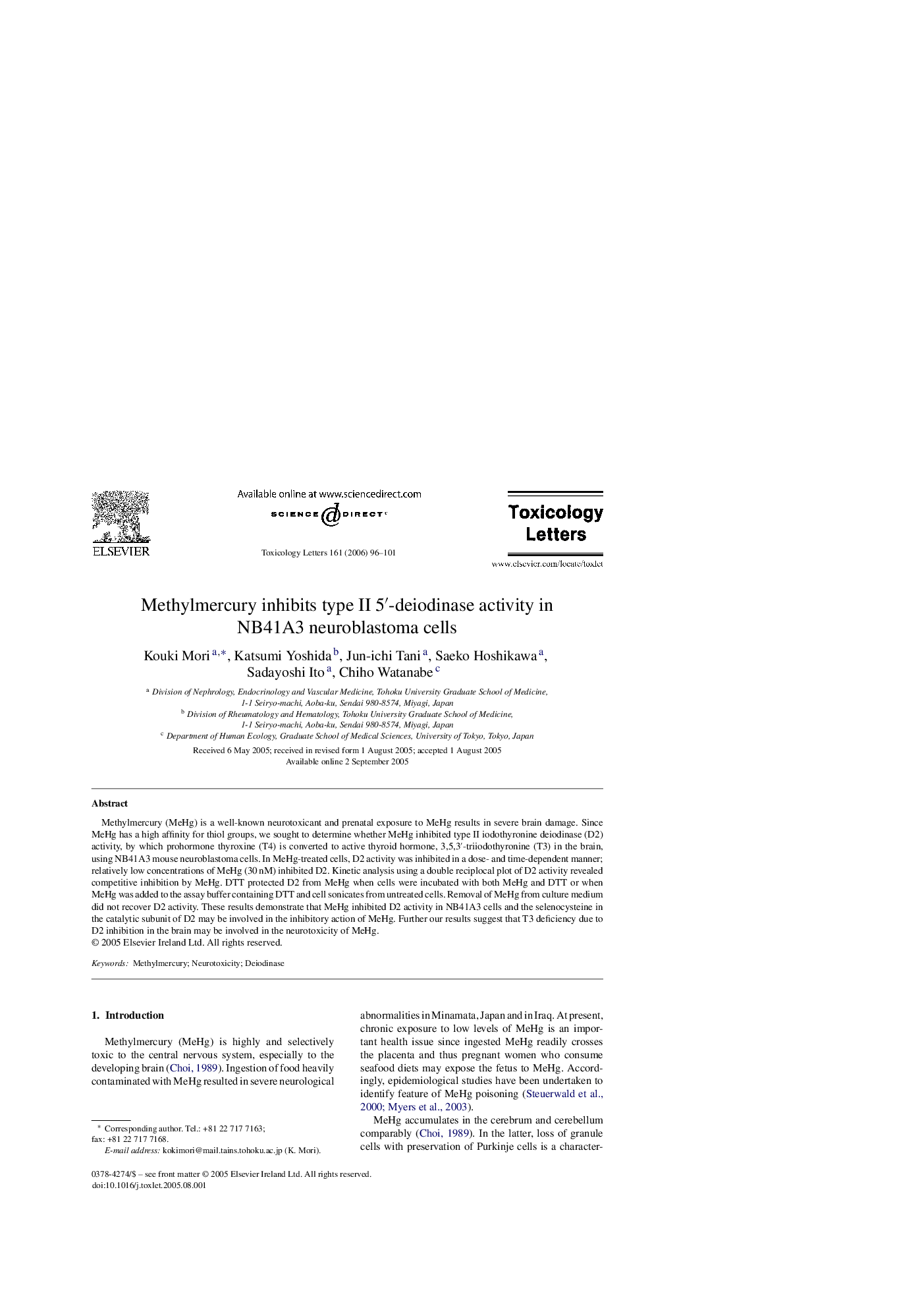| Article ID | Journal | Published Year | Pages | File Type |
|---|---|---|---|---|
| 2601997 | Toxicology Letters | 2006 | 6 Pages |
Methylmercury (MeHg) is a well-known neurotoxicant and prenatal exposure to MeHg results in severe brain damage. Since MeHg has a high affinity for thiol groups, we sought to determine whether MeHg inhibited type II iodothyronine deiodinase (D2) activity, by which prohormone thyroxine (T4) is converted to active thyroid hormone, 3,5,3′-triiodothyronine (T3) in the brain, using NB41A3 mouse neuroblastoma cells. In MeHg-treated cells, D2 activity was inhibited in a dose- and time-dependent manner; relatively low concentrations of MeHg (30 nM) inhibited D2. Kinetic analysis using a double reciplocal plot of D2 activity revealed competitive inhibition by MeHg. DTT protected D2 from MeHg when cells were incubated with both MeHg and DTT or when MeHg was added to the assay buffer containing DTT and cell sonicates from untreated cells. Removal of MeHg from culture medium did not recover D2 activity. These results demonstrate that MeHg inhibited D2 activity in NB41A3 cells and the selenocysteine in the catalytic subunit of D2 may be involved in the inhibitory action of MeHg. Further our results suggest that T3 deficiency due to D2 inhibition in the brain may be involved in the neurotoxicity of MeHg.
